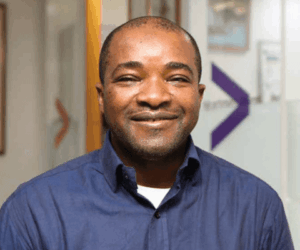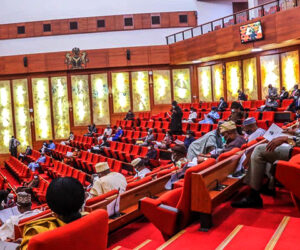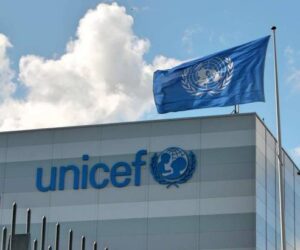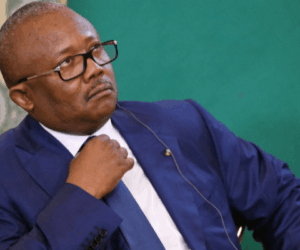Telecommunications giant MTN Group has officially unveiled the Pan-African Media Innovation Programme (MIP), a pioneering initiative designed to equip African journalists with future-fit skills, strengthen newsrooms, and restore public trust in journalism across the continent.
The launch, which took place in Johannesburg on Friday, brought together academics, media leaders, editors, and corporate executives, all united by a shared concern over the challenges facing African journalism in the digital age. Rising misinformation, shrinking newsroom resources, and eroding public confidence in the press were recurring themes, as speakers outlined how the programme would provide solutions.
The Pan-African Media Innovation Programme is being launched at a time of profound challenges. Across the continent, media organisations are struggling with declining advertising revenues, audience fragmentation, and the disruptive power of social media. At the same time, disinformation has grown into a serious threat to governance and public health, as seen during the COVID-19 pandemic and recent electoral cycles.
By combining corporate support, academic leadership, and editorial vision, the Pan-African Media Innovation Programme is positioned as a continental platform for resilience. It promises not only to strengthen individual journalists but also to inspire newsroom transformation and cross-border collaboration.
Nompilo Morafo, MTN Group’s chief sustainability and corporate affairs officer, said the programme reflected MTN’s deep belief in the transformative role of the media for Africa’s development, stressing that journalism, when empowered, could help to counter disinformation, strengthen democratic accountability, and drive progress.
“The time to act is now. To create a future we can all trust, we need media that is well-resourced, digitally skilled, and connected to communities across Africa. This programme is our contribution to ensuring that journalists are empowered to tell Africa’s story in ways that reflect its reality and its promise,” Morafo declared.
She explained that MTN, operating in about 16 African markets, has long recognised the need for partnerships that go beyond connectivity to touch on education, trust, and civic empowerment. According to her, the Pan-African Media Innovation Programme will offer training residencies, exposure to international best practices, and collaborative projects that will ensure African voices remain authoritative in global conversations.
Read also: Nigeria–South Africa ties deepen as MTN media summit opens in Johannesburg
Morafo emphasized that the initiative was also an investment in Africans. “This is not only about the future of the media. It is about the future of Africa’s youth, whose voices are often overlooked. By strengthening journalism, we create opportunities for innovation, for job creation, and for stories that inspire confidence in Africa’s future,” she added.
Anchoring the programme is the University of Johannesburg (UJ), which has developed the academic framework and curriculum for the Pan-African Media Innovation Programme.
Prinola Govenden, associate professor in the department of communication and media, University of Johannesburg (UJ) outlined how the programme would prepare journalists for the rapidly evolving media ecosystem.
“We are not just building a course, we are building a continental ecosystem of knowledge. The the Pan-African Media Innovation Programme will integrate digital storytelling, fact-checking, data journalism, and ethical reporting in an age increasingly shaped by artificial intelligence,” Govenden stated.
She stressed the need to decolonize media education, arguing that Africa’s media training should reflect African realities rather than merely replicate Western models. “Our vision is to ensure that African journalists are not only consumers of global narratives but producers of knowledge and stories that shape global understanding of our continent,” Govenden explained.
She further highlighted the university’s role in convening thought leaders and practitioners to make the curriculum relevant. “We want journalists to leave this programme not only with technical skills but also with the confidence to hold power accountable, defend truth, and speak authentically for African communities,” she said.
The initiative has also earned strong backing from The African Editors Forum (TAEF), whose president, Churchill Otieno, described the Pan-African Media Innovation Programme as a timely intervention to safeguard the integrity of journalism in Africa.
“Journalism is not only a profession, it is a public good. At a time when fake news and disinformation threaten social cohesion and public trust, this programme is an affirmation that African media can rise to the challenge,” Otieno told the gathering.
He noted that editors across the continent face increasing pressure to innovate while resources dwindle, arguing that a programme like the Pan-African Media Innovation Programme provides not just training but also solidarity and vision for the industry. “By investing in African journalists, we are investing in justice, in unity, and in the prosperity of our people. This is how we reclaim Africa’s storytelling power,” he said.
Otieno urged young journalists to take full advantage of the opportunity, reminding them that their responsibility went beyond reporting events to shaping the values and aspirations of society. “Innovation is not just about technology, it is about courage and integrity. That is the true test of journalism,” he averred.
Stakeholders therefore affirmed that Africa’s story must be told by Africans, with skill, integrity, and innovation.
For MTN, UJ, and TAEF, the Pan-African Media Innovation Programme is a commitment to that vision and a step toward building a media ecosystem that can command trust at home and respect abroad.








